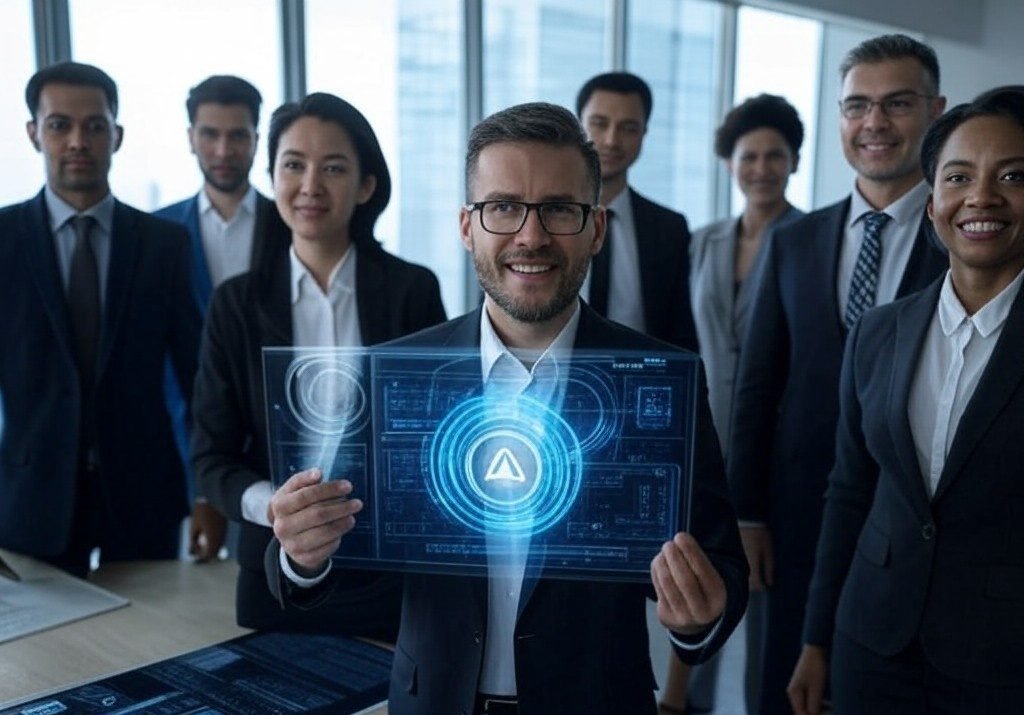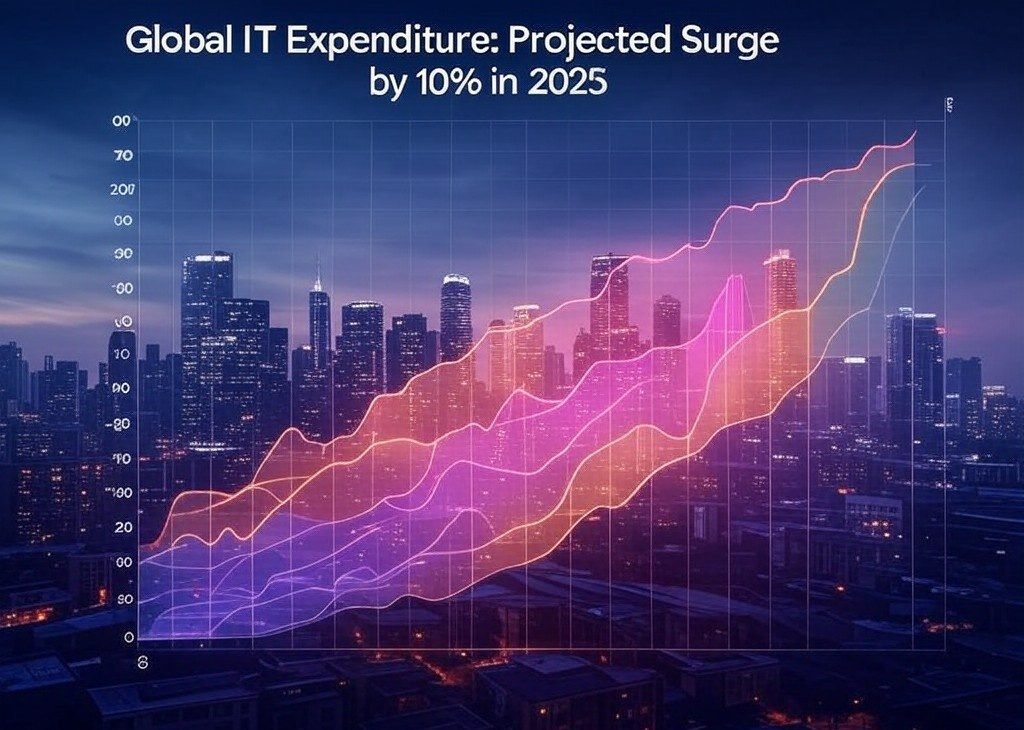The Future of AI-Powered Autonomy: Insights from Accenture’s Technology Vision 2025
As we mark a significant milestone with the 25th iteration of Accenture’s Technology Vision, the report sheds light on a transformative era where AI-powered autonomy is set to redefine the future landscape of technology and its integration into everyday life. The rapid diffusion of artificial intelligence across enterprises and society is unparalleled, and according to the report, 69% of executives are already recognizing this as a pivotal moment that necessitates a profound reinvention of technology systems and operational processes.
Julie Sweet, Accenture’s chair and CEO, articulates the urgency of this transformation by stating, “Our 25th Technology Vision gives leaders a look into what’s ahead when AI continuously learns, acts autonomously with and on behalf of people, and pushes enterprises and the people who use it into new and exciting ways to continuously reinvent.” This sentiment highlights the imperative for business leaders to embrace the potential of AI while also emphasizing the importance of trust in the systems they deploy.
The Crucial Role of Trust in AI
Trust emerges as a foundational element for the successful integration and utilization of AI technologies. Beyond the mere technical functioning of AI systems, the confidence users place in these systems significantly influences their broader societal impact. The report reveals that 77% of executives believe the transformative benefits of AI can only be realized when built upon a robust foundation of trust. Furthermore, 81% agree that trust strategies need to evolve concurrently with technology strategies.
Karthik Narain, Accenture’s group chief executive for Technology and CTO, emphasizes this point: “Advancements in digitizing knowledge, new AI models, agentic AI systems and architecture enables enterprises to create their own unique cognitive digital brains.” Such developments represent a significant shift from traditional technologies that merely catered to predefined business needs. The new generation of generalized AI systems empowers organizations to become more dynamic and intention-driven.
The Impact of Generative AI on Software Development
One of the most notable advancements highlighted in the Technology Vision 2025 is the emergence of generative AI (gen AI) and its profound implications for software development. The introduction of foundation models that can bridge natural language gaps has revolutionized the software development landscape. Gen AI coding assistants are not only enhancing the role of developers but are also accelerating the democratization of coding, enabling businesses to digitize more efficiently.
As organizations shift from conventional application architectures to intention-based frameworks, the rise of agentic systems becomes evident. This transition allows for the creation of adaptive and personalized multi-agent systems that can manage complex processes, such as optimizing inventory or streamlining travel plans. Accenture’s platforms, including GenWizard, SynOps, and AI Refinery, are at the forefront of this evolution, providing prebuilt industry agents and workflows that enable organizations to quickly harness the value of specialized multi-agent systems.
Creating Unique Customer Experiences with AI
As brands strive to leverage AI for customer engagement, differentiation becomes crucial. While 80% of executives express concern that large language models (LLMs) and chatbots may homogenize brand voices, 77% believe that a proactive approach to building personalized AI experiences can mitigate this risk. By incorporating distinctive brand elements such as culture, values, and voice into AI interactions, organizations can cultivate more authentic relationships with consumers.
The emergence of generalist robots is anticipated to further enhance customer experiences. Over the next decade, these robots will evolve from basic functionalities to specialized tasks, learning new skills rapidly. Collaborations such as the partnership between KION Group, Accenture, and NVIDIA illustrate this potential, as AI-driven robots are set to optimize warehouse operations, working seamlessly alongside human staff to improve efficiency and safety.
The Virtuous Cycle of People and AI
Another compelling insight from the Technology Vision 2025 is the creation of a virtuous learning loop between people and AI. This dynamic suggests that the more individuals engage with AI technologies, the better these systems will become, fostering an increasing desire for utilization. Unlike traditional automation, which typically delivers one-time benefits, AI’s ability to enhance and advance its capabilities over time positions it as a valuable asset for both individuals and organizations.
A key priority for business leaders, identified by 80% of executives, is to ensure a positive trajectory in the relationship between people and AI. This focus begins with transparent communication about AI strategies and the inclusion of employees in the development process. Accenture’s Generative AI Scholars Program, launched in collaboration with Stanford Online, exemplifies this commitment. By equipping clients with advanced knowledge and skills in generative AI, organizations can foster a more informed and enthusiastic workforce.
Looking Ahead: The Future of AI at CES 2025
The insights gleaned from the Technology Vision 2025 will be shared with a broader audience at CES 2025, scheduled for January 7, 2025. During a livestreamed presentation, leaders will discuss the transformative potential of AI and the implications for businesses and society at large. This event marks an opportunity for stakeholders across industries to engage with the latest research and trends in technology.
About the Research
For over two decades, Accenture’s Technology Vision has systematically examined technology trends poised to disrupt industries and businesses. The findings for the 2025 report were informed by a diverse advisory board of experts from academia, business, and the public sector. To gather comprehensive insights, Accenture conducted extensive global research, including surveys of over 4,000 executives across 21 industries and 28 countries, as well as over 12,000 consumers from October to December 2024.
Understanding Accenture’s Role in the Tech Landscape
Accenture stands as a premier global professional services company dedicated to assisting leading businesses, governments, and organizations in building their digital core. By optimizing operations, accelerating revenue growth, and enhancing citizen services, Accenture creates tangible value at speed and scale. The company boasts a talent-driven approach, with 799,000 professionals serving clients in over 120 countries. With technology as the cornerstone of change, Accenture remains committed to being a leader in driving innovation and transformation across various sectors.
Conclusion
As we navigate the complexities of an AI-driven future, the insights from Accenture’s Technology Vision 2025 serve as a vital guide for leaders across industries. The emphasis on trust, the transformative impact of generative AI, the importance of unique customer experiences, and the symbiotic relationship between people and AI collectively paint a picture of a future rich with possibilities. By embracing these principles and leveraging the potential of AI, organizations can position themselves at the forefront of innovation and success in the digital age.





